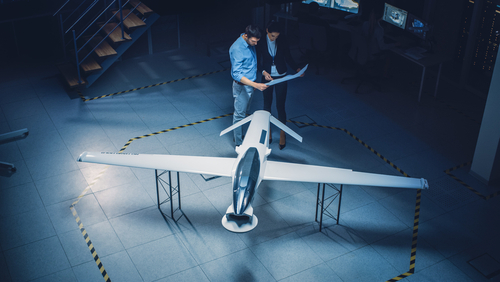
The U.S. Department of Transportation’s Federal Aviation Administration (FAA) announced Wednesday that it had awarded $5.8 million in grants for unmanned aircraft research.
The grants, part of the FAA’s Air Transportation Center of Excellence for Unmanned Aircraft Systems (UAS), also known as the Alliance for System Safety of UAS through Research Excellence, would fund 27 research, education, or training programs at 13 different universities across the country.
“These universities are making great strides in advancing the Department’s efforts to integrate UAS safely and efficiently into our Nation’s airspace system, ultimately delivering new transportation solutions and economic benefits for the American people,” Acting U.S. Secretary of Transportation Steven G. Bradbury said.
Grants were provided in six research areas –
• Air carrier operations and identifying the differences between commercial air carrier operation and unmanned transport operations;
• UAS Cargo Operations, identifying future trends, performance, reliability, and safety characteristics;
• High-Bypass UAS Engine Ingestion Test;
• Small UAS (sUAS) Mid-Air Collision (MAC) Likelihood;
• Mitigating GPS and Automatic Dependent Surveillance-Broadcast (ADS-B) Risks for UAS;
• Shielded UAS Operations–Detect and Avoid (DAA)
Grants ranged from $220,000 to Kansas State University to serve as the lead university looking into air carrier operations, and $464,000 to Wichita State University to serve as the lead university studying small UAS mid-air collision likelihood, the University of North Dakota to serve as the lead university studying shielded UAS operations, to $60,000 to the University of North Dakota to study UAS cargo operations.
According to the FAA, more than 1.7 million recreational and commercial drones are in the active UAS fleet, which is expected to grow as high as 2.31 million by 2024.
“These universities are making great strides in advancing our efforts to safely and efficiently integrate UAS into our nation’s airspace system,” said FAA Administrator Steve Dickson. “Each grant is designed to explore the questions that will lead to greater UAS and unmanned air carrier integration, which will ultimately deliver new transportation solutions and economic benefits for the American people.”